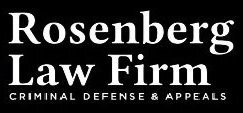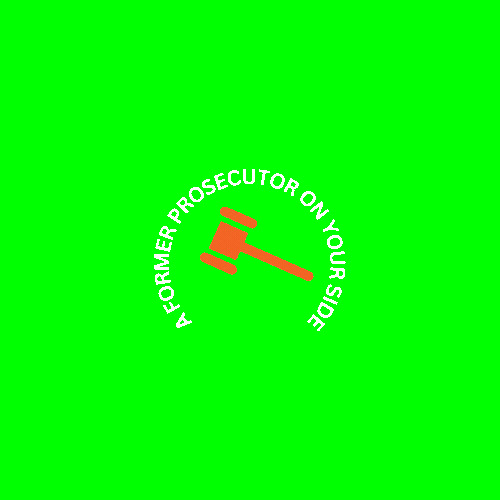Best Ethics and Professional Responsibility Lawyers in Brooklyn
Share your needs with us, get contacted by law firms.
Free. Takes 2 min.
List of the best lawyers in Brooklyn, United States
About Ethics and Professional Responsibility Law in Brooklyn, United States
Ethics and professional responsibility law governs the conduct of licensed professionals - most prominently attorneys and judges - and sets standards for honesty, competence, confidentiality, conflicts of interest, fees, advertising, and courtroom conduct. In Brooklyn these rules are enforced under New York State law and by local oversight bodies with authority in Kings County. For attorneys the New York Rules of Professional Conduct establish ethical duties, and enforcement is handled through the Appellate Division and its grievance committees. For judges and judicial officers separate judicial-conduct rules and a judicial oversight body apply. Public employees and elected officials in the City of New York may also be subject to city ethics rules and conflict-of-interest regulations.
Why You May Need a Lawyer
You may need a lawyer experienced in ethics and professional responsibility if you are:
- An attorney or judge facing a complaint, investigation, or disciplinary charges
- A client who believes your lawyer committed misconduct or malpractice
- A public employee or official accused of violating city or state ethics rules
- A third party impacted by professional misconduct who needs to report or pursue remedies
- Seeking advice on avoiding conflicts, drafting compliant fee agreements, or responding to an ethics inquiry
Specialized counsel can explain the applicable rules, represent you before grievance committees or judicial panels, negotiate settlements, and protect your professional license and reputation.
Local Laws Overview
Key local and state elements that affect ethics and professional responsibility in Brooklyn include:
- New York Rules of Professional Conduct - These are the primary ethical rules for attorneys statewide. They cover confidentiality, conflicts of interest, competence, communication with clients, fees, advertising, and reporting of misconduct.
- Appellate Division - Second Department - This appellate division supervises attorney discipline for Brooklyn and surrounding counties. Its Grievance Committee for the Second Judicial Department receives complaints, investigates, and may bring formal charges that the Appellate Division decides.
- Grievance Committee for the Second Judicial Department - The committee conducts initial intake and investigations of complaints against lawyers who practice in the Second Department's territory, which includes Kings County.
- Commission on Judicial Conduct - Judicial ethics complaints against judges are handled by this state commission, which investigates allegations and can recommend admonition, censure, suspension, or removal.
- New York City Conflicts of Interest Board - City employees and officials in Brooklyn must follow city-specific conflict-of-interest and gift rules enforced by this board.
- Attorney-client privilege and confidentiality - New York law protects client communications, subject to defined exceptions such as the crime-fraud exception. Attorneys must take steps to safeguard client information.
- Discipline outcomes - Possible outcomes for professionals range from private admonitions and public reprimands to suspension or disbarment. Civil liability, restitution, and criminal referrals are also possible depending on the conduct.
Frequently Asked Questions
What counts as attorney misconduct in Brooklyn?
Attorney misconduct includes actions that violate the New York Rules of Professional Conduct - for example misappropriating client funds, serious conflicts of interest, dishonesty, failing to communicate with a client, incompetence in handling matters, false statements to a tribunal, and certain advertising or solicitation violations. Each allegation is evaluated against the specific rule and the facts of the case.
How do I file a complaint against a lawyer in Brooklyn?
To complain about an attorney you would submit a written complaint to the Grievance Committee for the Second Judicial Department. Complaints should include specific facts, dates, and supporting documents. The committee will acknowledge receipt and decide whether to investigate further. If you are unsure where to send a complaint, contact local bar association staff or the Appellate Division for guidance.
What happens after a complaint is filed?
The grievance committee screens the complaint. If it appears to raise a potential ethics violation, the committee may investigate, request documents, and interview witnesses. The respondent attorney will be notified and can respond. The committee can dismiss the complaint, issue an admonition, or present charges to the Appellate Division. Formal charges can lead to hearings and disciplinary decisions by the court.
How is lawyer malpractice different from an ethics violation?
Malpractice is a civil claim that a lawyer breached a duty of care to a client and caused financial harm. Ethics violations are breaches of professional rules enforced by regulatory bodies. A lawyer can face both a disciplinary action and a malpractice lawsuit based on the same facts, but the processes, standards, and remedies differ.
Do I need a lawyer to respond to a disciplinary complaint?
Technically you can respond pro se, but retaining counsel experienced in professional responsibility is strongly recommended. A specialist can advise on strategy, draft responses, negotiate settlements, and represent you at hearings - all of which can materially affect the outcome and any sanction imposed.
What penalties can an attorney face in Brooklyn?
Penalties range from private admonitions and public reprimands to suspensions or disbarment. Additional consequences can include restitution to clients, monetary penalties, reporting to other authorities, and civil or criminal charges if applicable. The severity depends on factors such as intent, harm, prior record, and mitigation.
How long does a disciplinary process usually take?
Timing varies. Initial screening and informal investigation can take weeks to months. Formal investigations and proceedings that lead to charges and hearings may take many months or longer. Complex matters can extend over a year. Cooperation and timely responses can shorten certain phases.
Can I withdraw from a case if my lawyer has an ethical conflict?
If a conflict of interest arises that materially limits representation, the lawyer may need to withdraw if it cannot be resolved. In many cases the lawyer must obtain informed consent in writing from the client to continue. If you believe a conflict is present and unresolved, raise the issue with the lawyer and consider seeking independent advice.
How do judicial ethics complaints work?
Complaints about judges are filed with the Commission on Judicial Conduct. The commission investigates allegations of judicial misconduct or incapacity. If it finds grounds, the commission can admonish, censure, require disability retirement, or recommend removal to the Court of Appeals. The process is separate from attorney disciplinary procedures.
Where can I get confidential advice about a potential ethics issue?
If you are an attorney seeking confidential guidance, consider contacting your local bar association ethics hotline or a professional-responsibility attorney for counsel. Clients concerned about a lawyer should consult a different attorney for independent advice. Government employees should consult the applicable ethics officer or the city conflict-of-interest board for confidential guidance when possible.
Additional Resources
Grievance Committee for the Second Judicial Department - handles attorney complaints in Brooklyn and surrounding counties.
Appellate Division - Second Department - oversees attorney discipline and issues final disciplinary decisions for the region.
Commission on Judicial Conduct - receives and investigates complaints about judges.
New York Rules of Professional Conduct - the statewide ethical rules that govern attorney conduct.
New York City Conflicts of Interest Board - enforces city ethics rules for municipal employees and officials.
Brooklyn Bar Association - local bar resources, referrals, and ethics guidance.
New York State Bar Association - statewide resources, ethics opinions, and continuing legal education offerings.
Legal aid providers and law school clinics - may offer guidance for clients who cannot afford private counsel.
Next Steps
If you believe you need legal assistance related to ethics or professional responsibility in Brooklyn, consider these steps:
- Preserve all documents and communications that relate to the issue - emails, engagement letters, billing records, court filings, and notes.
- Determine the appropriate forum - grievance committee for attorney complaints, Commission on Judicial Conduct for judges, or the city conflict-of-interest board for municipal matters.
- Seek a consultation with an attorney who specializes in professional responsibility or disciplinary defense. Ask about experience with the Second Department and relevant bodies.
- Respond promptly to any official notices or inquiries. Missing deadlines or failing to respond can worsen outcomes.
- If you are a client considering a malpractice claim, get an independent attorney to evaluate potential claims and applicable statutes of limitation.
- If you are a professional seeking guidance on compliance, use ethics hotlines, CLE materials, and written policies to reduce future risk.
Note - This guide provides general information about ethics and professional responsibility in Brooklyn and is not a substitute for legal advice specific to your situation. If you have a particular matter, consult a qualified attorney promptly.
Lawzana helps you find the best lawyers and law firms in Brooklyn through a curated and pre-screened list of qualified legal professionals. Our platform offers rankings and detailed profiles of attorneys and law firms, allowing you to compare based on practice areas, including Ethics and Professional Responsibility, experience, and client feedback.
Each profile includes a description of the firm's areas of practice, client reviews, team members and partners, year of establishment, spoken languages, office locations, contact information, social media presence, and any published articles or resources. Most firms on our platform speak English and are experienced in both local and international legal matters.
Get a quote from top-rated law firms in Brooklyn, United States — quickly, securely, and without unnecessary hassle.
Disclaimer:
The information provided on this page is for general informational purposes only and does not constitute legal advice. While we strive to ensure the accuracy and relevance of the content, legal information may change over time, and interpretations of the law can vary. You should always consult with a qualified legal professional for advice specific to your situation.
We disclaim all liability for actions taken or not taken based on the content of this page. If you believe any information is incorrect or outdated, please contact us, and we will review and update it where appropriate.









